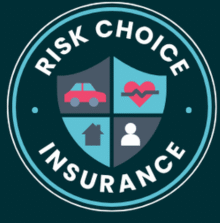
Providing protection and peace of mind to both people and companies, the insurance sector has historically been pillar of financial stability. Starting an insurance agency company is about developing trust, assisting customers in reducing risk, and forging long-term bonds rather than only marketing policies. For those who aspire to be entrepreneurs, the terrain seems more hopeful as we enter 2025. This thorough guide will assist you in starting, running, and expanding a profitable insurance agency business regardless of your level of experience as an insurance expert or someone investigating other business paths.
Why would one start an insurance agency business?
1. Industry Resilient for Reversal of Recession
Not a luxury, but rather a need is insurance. People require health, auto, house, and life insurance independent of their financial situation. This makes the insurance agency business a reliable source of income and quite recession-proof.
2. Model of Recurrent Income:
Since most insurance policies are renewed yearly, commission income is always flowing. Your consistent income increases as your clientele expands.
3. Low Overhead expenses
Unlike many physical stores, many insurance companies can run out of a tiny commercial location or a home office. Virtual meetings and digital tools have even helped to save running costs.
4. Different Product Selection
Among the many products you can provide are auto, home, life, health, commercial, and specialized insurance. Diversification increases profitability and helps to meet different client needs.
First step in launching an insurance agency business: obtain licenses.
You have to be licensed as an insurance agent in your state to open your agency. Though specific requirements differ, generally they include:
Coursework on pre-licensing
Getting passed the state licensing test
Background checks
Ongoing learning helps one keep license.
You can need various licenses for several lines—e.g., life, health, property, and casualty).
2. Select Your Corporate Model.
Main models are two:
Represents one insurance carrier: captive agency. State Farm or Allstate agents, for instance.
Represents several carriers and gives customers a range of possibilities in an independent agency.
Independent agencies demand more aggressive marketing campaigns but provide greater flexibility and maybe better commissions.
3. Register your company.
Select a legal structure—LLC, sole proprietorship, S-corp, etc.—then register your company with your state. Get local business licenses in addition to an EIN from the IRS.
4. Safe E-learning Insurance
One absolutely needs errors and omission (E&O) insurance. It guards your agency against client advice-related negligence or mistakes accusations of which could arise.
5. Select Carrier of Insurance
You will have to be nominated by insurance companies once you have license. Every organization has distinct policies and terms of contract. Seek carriers who provide:
Superior goods
Consistent client assistance
robust underwriting and claims processing
Marketing backing
7. Create a tech stack.
Your agency will need the following resources:
Managers of client records, quotes, and policies—the agency management system (AMS)
CRM, or customer relationship management, supports follow-up and lead generation.
Quoting Software: Shows real-time carrier insurance quotes.
Tools for SEO and website design help draw in and convert web users.
Growing Your Insurance Agency Business: Strategies
Starting only marks the beginning. Expanding your insurance agency company calls both constant work and intelligent preparation.
1. Create a niche.
Work on a niche instead of trying to accommodate everyone. Illustrations of:
Small business protection
Rich people with high net worth
first-time purchasers of homes
Insurance related to trucking and logistics
Niches enable you to stand out and get great knowledge, so increasing the value of your agency to your target market.
2. Project a strong online presence.
A good digital strategy comprises:
Your website should be local SEO optimized, easily navigable, and mobile friendly.
Blogging: Share often occurring answers to often asked queries (like “What is umbrella insurance?”).
Google Business Profile lets you rank in local searches.
Online Reviews: Motivational tools for happy customers include leaving reviews.
3. Use SEO wisely.
Natural traffic is driven in part by search engine optimization (SEO). Turn your attention to:
Keywords including “insurance agency business,,” “auto insurance agent near me,,” “life insurance for families,,” etc.
adjusted meta descriptions and title tags
Internal linking connecting service pages to blog entries
Quick times for website loading
Use social media marketing tools such LinkedIn, Facebook, and Instagram to assist:
Raise brand recognition.
Share knowledge with your listeners.
Create focused campaigns.
Interact with both present and future customers.
Run Facebook Lead Ads to create leads reasonably priced.
5. Email advertising
Create an email list including clients and prospects. Send newsletters often including policy reminders, changes, and advice. Follow up on policies and quotations using automation.

Insurance Agency Business Problems and Their Solutions
Discover your USP and concentrate on customer service to address great competition. Stress dependability, rapid responses, and customized solutions.
Policy reviews, newsletters, and birthday greetings help you to keep in touch with clients. Provide yearly assessments of fresh insurance requirements.
Stay current with industry rules to help with regulatory compliance. Become members of groups like Independent Insurance Agents & Brokers of America (IIABA) or the National Association of Professional Insurance Agents (PIA).
4. Organizing Time and Activities
Solution: Sort administrative chores using automated tools. Assign non-sales tasks or contract virtual assistants.
Organizing Your Agency for Insurance Scaling
Once your agency makes money, think about these expansion plans:
1. Employ Executives
Call on licensed agents to increase your sales scope. Provide performance-based incentives for output.
2. Share Open New Sites
List open satellite offices and areas of rapid growth. Copie success with your current marketing playbook.
3. Attach an Insurance Policy Grouping
Small agencies can get better commissions, more carrier appointments, and support services by means of clusters or aggregators.
4. Provide Value-added Services.
You might want to include:
Finance planning
Retirement fixes
Consultancies on risk management
Programs for employee benefits
These services strengthen your bond with clients and boost income per one of them.
Cost Analysis: Expectations Regarding Beginning
Here’s a projected cost breakdown:
Expense Calculated Cost Licencing and Exams Three hundred to six hundred dollars
E & O Insurance $500 – $2,000 yearly
Corporate Registration $150 through $800 Website and Branding $1,000—$5,000
Marketing and Advertisements $500, then two thousand a month.
Office arrangement (should actual ones exist) Two thousand to ten thousand dollars.
Technical instruments (AMS/CRM) Between $100 and $500 a month
Starting an insurance agency business is comparatively low-cost, especially if you start virtually, compared to other businesses.
Compliance and Legal Issues
Please ensure:
Apply all state rules on insurance sales.
Continue to have current E&O coverage.
For tax reasons, appropriately report commissions.
Under HIPAA and state privacy rules, keep customer information safe.
Show clients appropriate disclosures and agreements.
Last Thoughts
In 2025 the insurance agency business is still a profitable and fulfilling prospect. A scalable and sustainable company can be created by combining industry knowledge, digital marketing techniques, client-first service with the appropriate mix. Though it won’t happen over night, with consistency and integrity you may create an agency that truly benefits your neighbourhood.
Remember that insurance is more than simply a policy—it’s a promise—regardless of your degree of starting point or desire to grow your current business. Your responsibility is to fulfill that promise to every customer you deal with.
